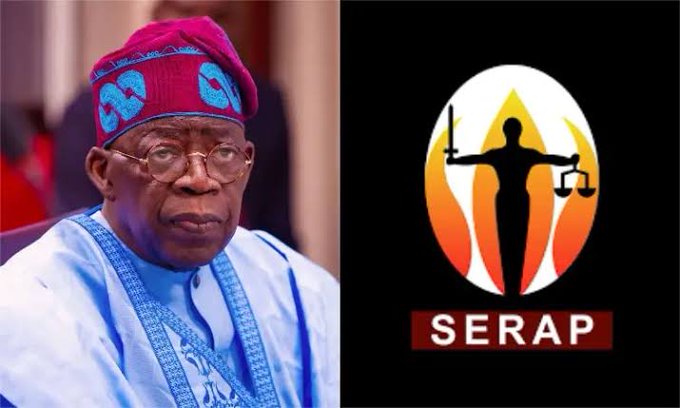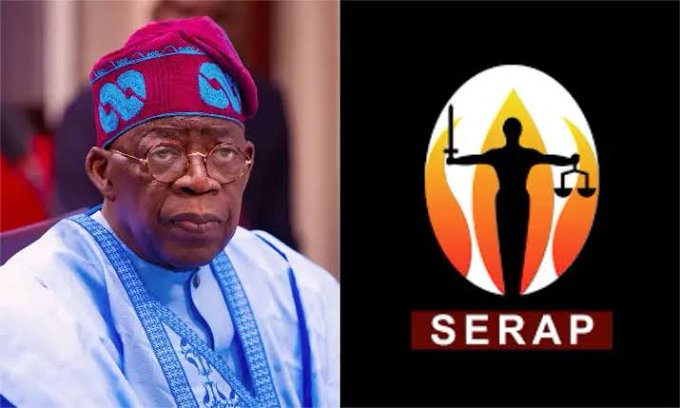SERAP Demands Withdrawal Of Tinubu’s Pardon For Convicted Politicians

The Socio-Economic Rights and Accountability Project (SERAP) has called on President Bola Tinubu to immediately revoke the presidential pardon recently granted to individuals convicted or serving sentences for corruption, arguing that the decision breaches Nigeria’s Constitution and international anti-corruption commitments.
In a statement issued on Friday, SERAP described the pardon as “entirely inconsistent and incompatible” with section 15(5) of the 1999 Constitution [as amended], which mandates the Nigerian state to “abolish all corrupt practices and abuse of power.”
“We urge the Tinubu administration to urgently review and withdraw the pardon recently granted to those serving jail terms or convicted and sentenced for corruption,” the group said.
“We’ll consider appropriate legal action if the presidential pardon is not immediately withdrawn or rescinded.”
The organisation argued that the decision contradicts President Tinubu’s public commitment to combat corruption and uphold the rule of law.
According to SERAP, the pardon “is antithetical to the Constitution and contrary to the president’s own oft-repeated promises to prevent and combat corruption.”
Citing international obligations, SERAP noted that the decision breaches Article 26 of the United Nations Convention against Corruption (UNCAC), which requires state parties to ensure “effective, proportionate, and dissuasive sanctions” for corruption-related offences.
The group also referenced Article 30 of the Convention, which calls for sanctions that reflect the gravity of such offences.
“The pardon for those serving jail terms or convicted and sentenced for corruption also constitutes an interference in the exercise of judicial power,” SERAP added. “Because the pardon appears to be arbitrary, it undermines the authority and independence of the judiciary, and access to justice for victims of corruption.”
The group acknowledged that Section 175 of the Constitution grants the president discretionary powers of mercy but insisted that such discretion must be exercised ethically and in good faith.
“When section 15(5) of the Constitution is read together with the oath of office, it imposes some ethical conditions on the president to ensure that the power of prerogative of mercy is not used to encourage corruption or impunity,” the statement said.
SERAP lamented that presidential pardons have frequently been used to shield “influential politicians and politically exposed persons” while “ordinary people who have committed petty offences languish in prisons and are rarely considered for pardon.”
“The constitutional power of prerogative of mercy ought not to be an instrument of impunity,” the organisation concluded. “Impunity for corruption will continue as long as influential politicians escape justice for their crimes.”
